Following Robert Mueller’s investigation is like trying to figure out the plot of a Russian novel by listening into a discussion at a book club.
As the first anniversary of the appointment of Mueller as special counsel of the federal investigation into Russian meddling in the 2016 election comes Thursday, it’s clear there’s a lot the general public still doesn’t know about what he’s found.
Over the past 12 months, Mueller has indicted 19 people on charges ranging from lying to the FBI to laundering money, secured five guilty pleas ranging from peripheral figures in the Trump campaign to former National Security Advisor Michael Flynn and revealed Russian influence tactics ranging from placing ads on social media to staging rallies inside the United States.
But the famously tight-lipped team of federal investigators involved in Mueller’s probe has not tipped its hand on major areas of its work, some of which the public has only heard about glancingly from other sources.
Here’s a look at some of the biggest unanswered questions as Mueller’s investigation finishes its first year.
Did Trump know about the Trump Tower meeting?
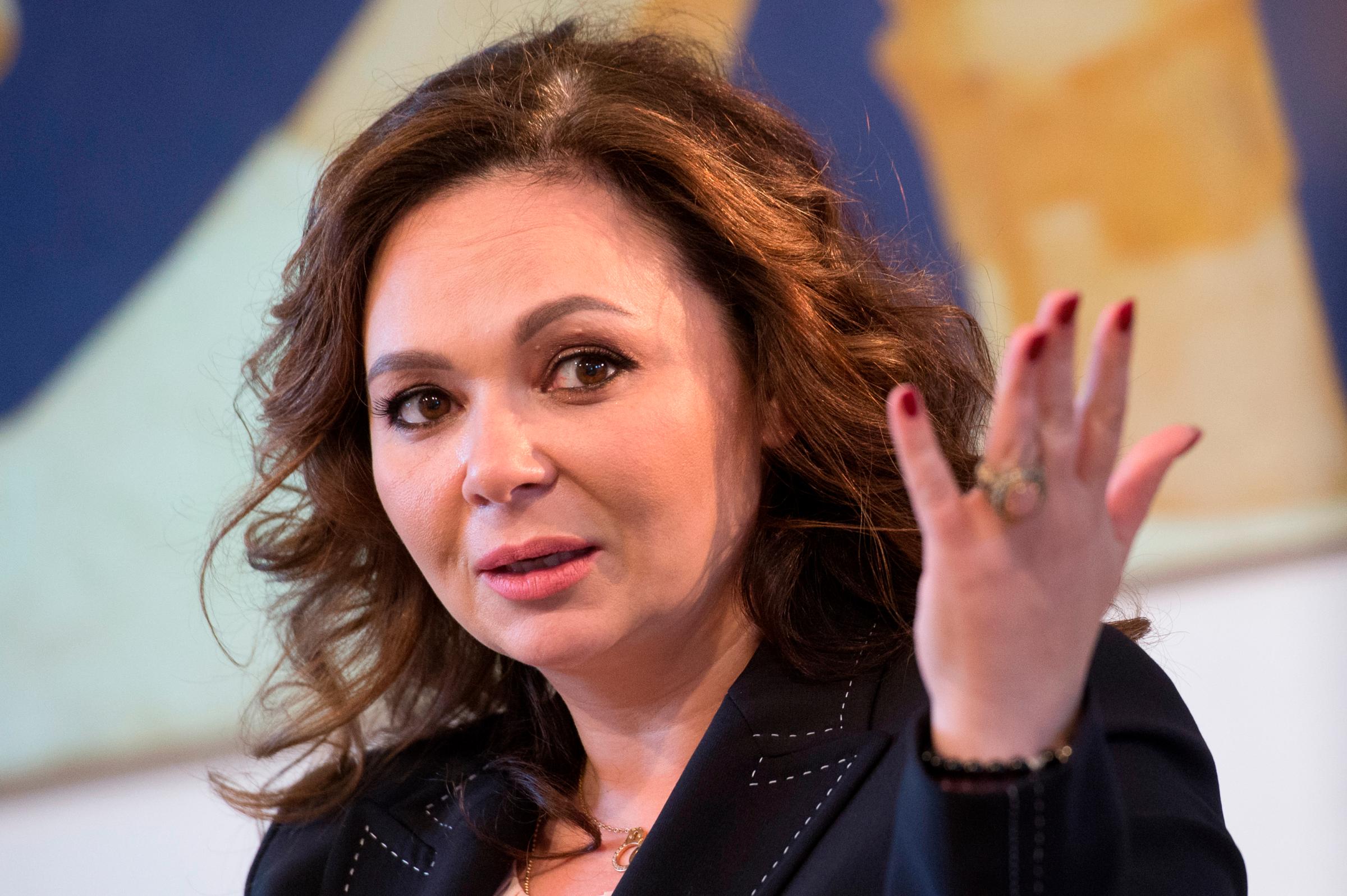
On June 9, 2016, Donald Trump Jr., campaign head Paul Manafort and Trump’s son-in-law Jared Kushner met with Kremlin-connected Russian lawyer Natalia Veselnitskaya at Trump Tower after being promised damaging information about Hillary Clinton. The Trump team maintains that Veselnitskaya did not share anything of interest and that there was no follow-up.
Trump critics have raised doubts about that explanation, particularly due to inconsistent accounts given by participants at different points. In particular, critics have raised the question of how much Trump was involved in the meeting and Mueller is reportedly investigating it.
In a minority report, House Democrats on the Intelligence committee noted that while setting up the meeting on June 6, Trump Jr. called an unknown blocked number, which they argue could have been his father’s home phone. During a campaign event the next day, then-presidential candidate Donald Trump pledged to give a “major speech” on “all the things that have taken place with the Clintons,” and after the meeting happened he tweeted about Clinton’s emails.
But Trump has long said he was not in the loop. After news about the meeting broke in 2017, Trump said he didn’t know anything about it “until a couple of days ago,” though he later added it might have been “mentioned at some point.” White House spokeswoman Sarah Huckabee Sanders also said Trump did not know about the meeting at the time it took place.
In his testimony to the Senate Judiciary Committee, Trump Jr. said he could not remember whether he told his father about the meeting.
If Trump knew about the meeting, it would suggest it was more important than his team has argued and raise questions about why he said he did not know. On the other hand, the fact that Trump never gave that promised speech seems to back up his team’s contention that the meeting was a dud.
What did Roger Stone know about hacked emails?
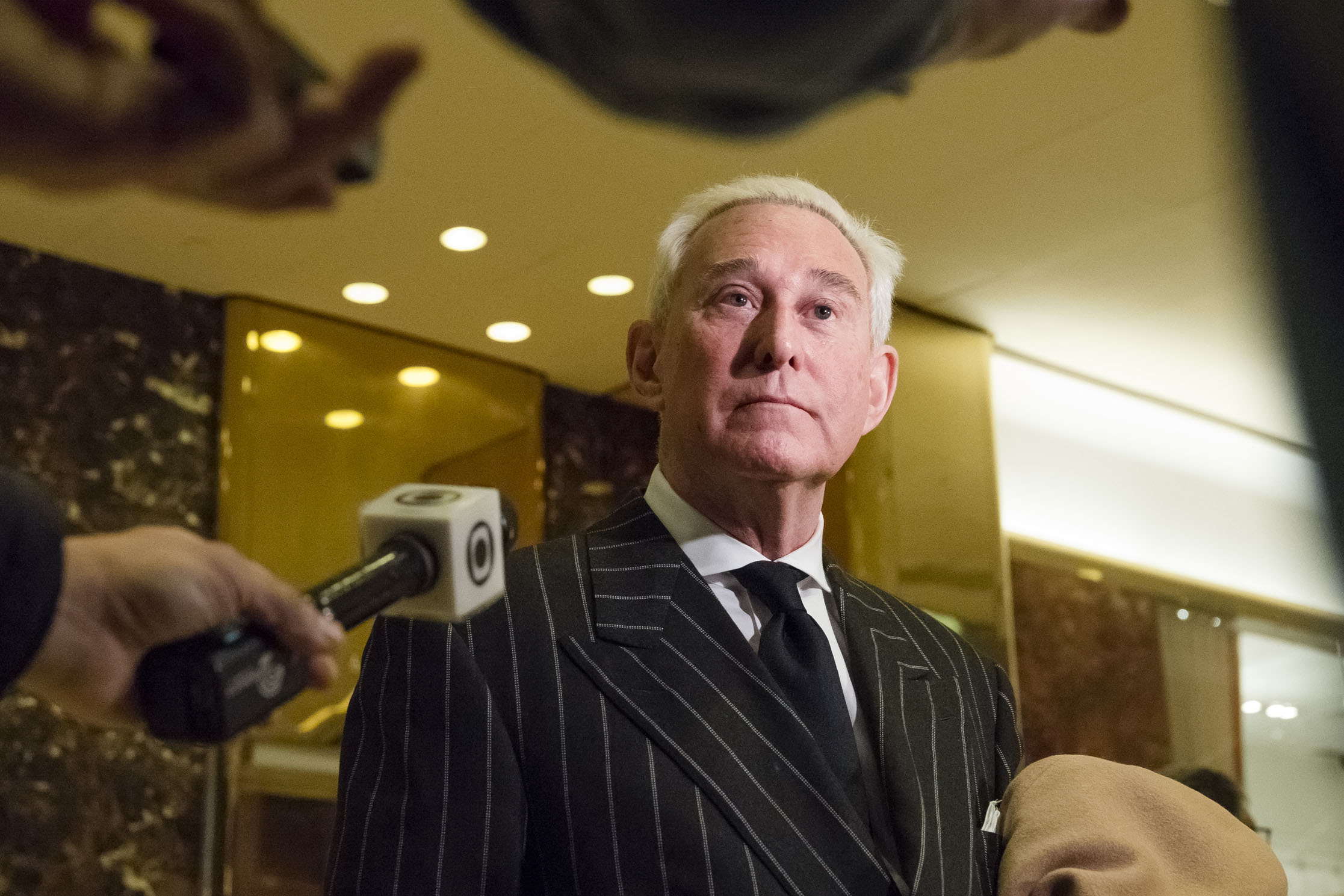
On Aug. 4, 2016, erstwhile Trump adviser Roger Stone emailed a former Trump campaign aide that he had dinner with WikiLeaks founder Julian Assange the night before.
When the email became public in the Wall Street Journal, Stone said the email was sent “in jest” and that he never met with Assange — a claim that Mueller is reportedly looking into, even going as far as subpoenaing Stone’s social media manager.
But it wasn’t the only time the former Nixon operative may have had contact with shadowy figures in the 2016 campaign. The Atlantic reported Stone exchanged direct messages on Twitter with the WikiLeaks account. He later told a local Republican group in Florida he had “communicated with Julian Assange.” And he’s admitted to exchanging direct messages with DNC email hacker Guccifer 2.0, which investigators believe was a front for Russian military intelligence.
Stone has said his contacts were either innocent, too brief to involve any coordination or did not happen.
But apart from the reported contacts, Stone also had a tendency to accurately predict upcoming leaks. In an appearance on the fringe InfoWars radio show, the day after his email to the former campaign aide, Stone said WikiLeaks would soon have more leaked information about Hillary Clinton. In August, he cryptically tweeted that it would soon be Clinton campaign chairman John Podesta’s “time in a barrel,” and he again hinted at a leak just days before Podesta’s emails came out in October.
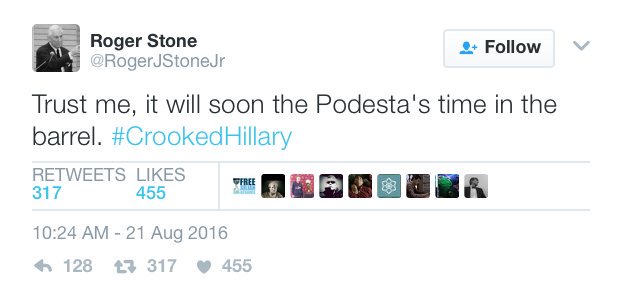
Stone has known Trump since the 1980s and was one of the perennial leaders of efforts to “draft Trump” to run for president in years past. Although he left the campaign early on, he often boasted in interviews that he kept in touch with Trump throughout his presidential bid. One of the more interesting questions about the campaign is what Stone knew about the hacked emails — and whether he told Trump.
Why did Jared Kushner meet with a Russian banker?
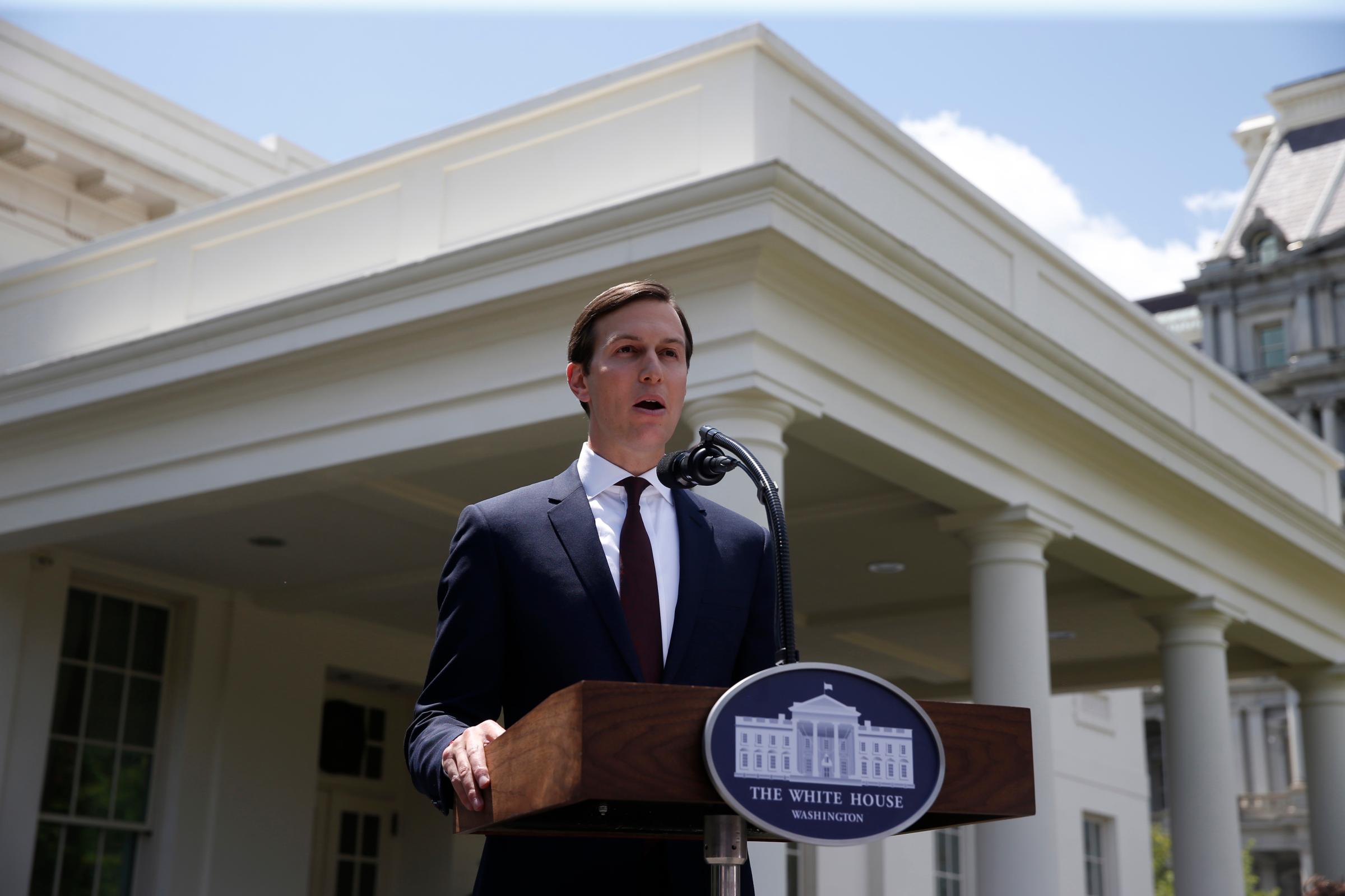
On Dec. 13, 2016, Trump’s son-in-law Jared Kushner met with Russian banker Sergey Gorkov, a close associate of Putin’s whose firm, Vnesheconombank, or VEB, that one Russia expert has compared to a “slush fund” for the Russian president and has been under sanctions since 2014.
The White House said the meeting came at the request of Russian Ambassador Sergey Kislyak, but Trump critics have questioned both sides’ motivation for the meeting and Mueller is reportedly investigating Kushner’s finances and business dealings.
At the time, Kushner was actively seeking financial help for the crown jewel of his family’s real estate empire — a troubled building called 666 Fifth Avenue in New York City. The Kushners bought the building for $1.8 billion in 2007, which at the time was the most expensive real estate deal in city history, but it has been bleeding cash since then.
When the meeting became public in 2017, a White House spokeswoman portrayed it as a routine diplomatic encounter, though Gorkov later released a statement saying Kushner met with him as a businessman and not a future administration official.
There’s no evidence that Kushner was looking for financing from VEB for 666 Fifth Avenue, which would have been a tricky prospect due to the sanctions anyway. But Trump biographer Timothy O’Brien argued that if so, it would be similar to talks that Kushner had with Chinese company Anbang, which has close ties to that country’s leadership. (That potential deal fell through amid public scrutiny.)
It also wouldn’t be the first time VEB was associated with a Trump project. In 2017, the Wall Street Journal reported that the bank financed a deal involving Trump’s onetime partner to build the 65-story Trump International Hotel and Tower in Toronto.
Why did Michael Flynn lie about his Russian contacts?
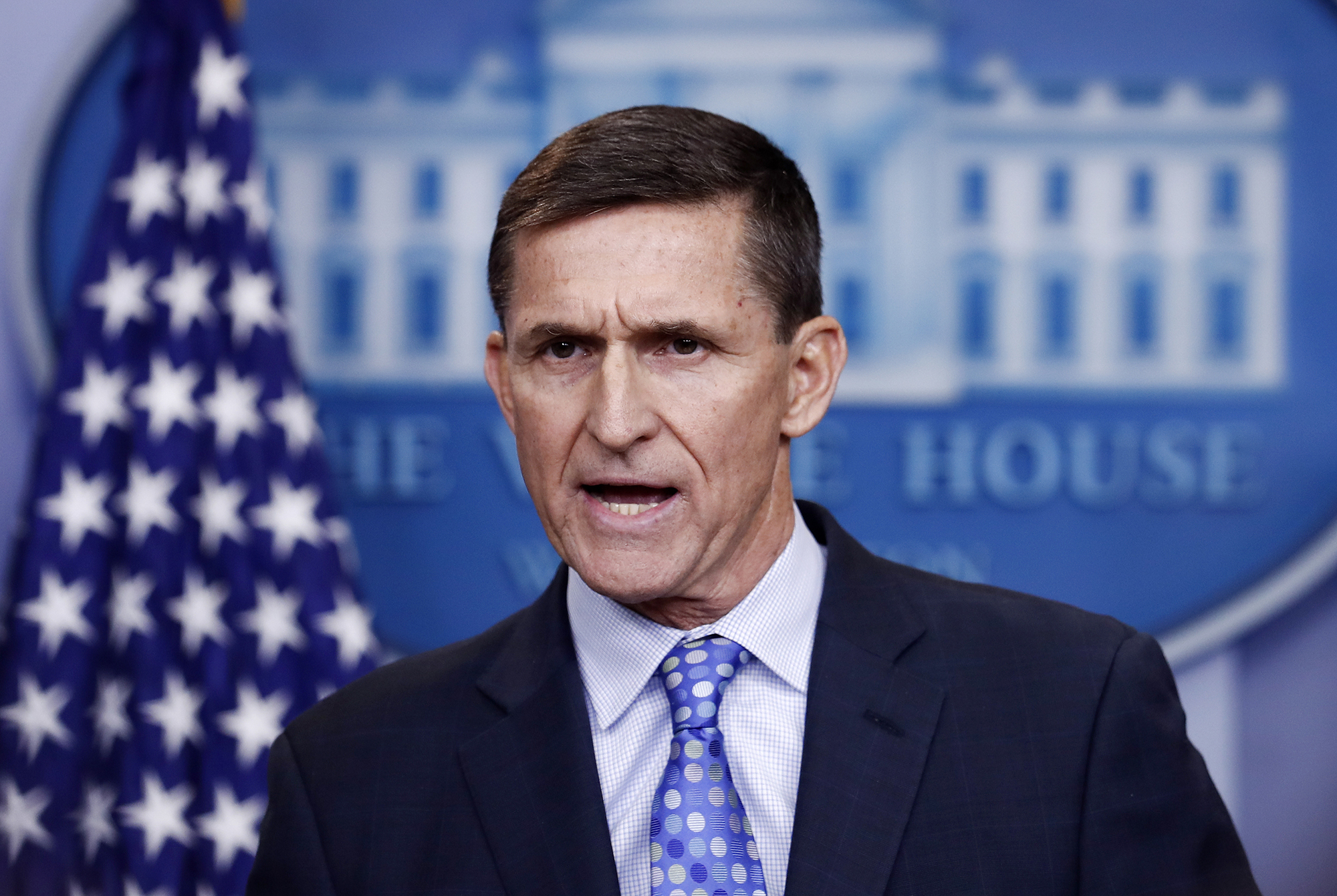
On Dec. 29, 2016, President Barack Obama announced new sanctions on Russia in response to its meddling in the 2016 election. Incoming National Security Advisor Michael Flynn talked by phone with Kislyak, urging Russia not to escalate the conflict.
The next day, Russian President Vladimir Putin announced he would not retaliate, and President-elect Trump praised him in a tweet.
On Jan. 12, 2017, Washington Post columnist David Ignatius first reported on the phone calls. Over the following days, White House spokesman Sean Spicer, Vice President Mike Pence and Chief of Staff Reince Priebus denied the calls had anything to do with the Obama Administration sanctions, and Flynn repeated the denial to FBI agents and the Post.
That story eventually fell apart. On Feb. 9, both the Post and the New York Times reported Flynn had, in fact, discussed the sanctions with Kislyak. Trump fired Flynn on the grounds he lied to Pence about the phone call, and Flynn faced an FBI investigation. It was then that former FBI Director James Comey testified that Trump asked him to find a way of “letting Flynn go.”
On Dec. 1, Flynn pleaded guilty to lying to the FBI about the conversations and pledged to cooperate with Mueller’s special counsel. But the whole episode raised questions about who in the White House knew that Flynn was discussing sanctions with Russia and why Flynn lied about it afterward.
What did George Papadopoulos do after he was arrested?
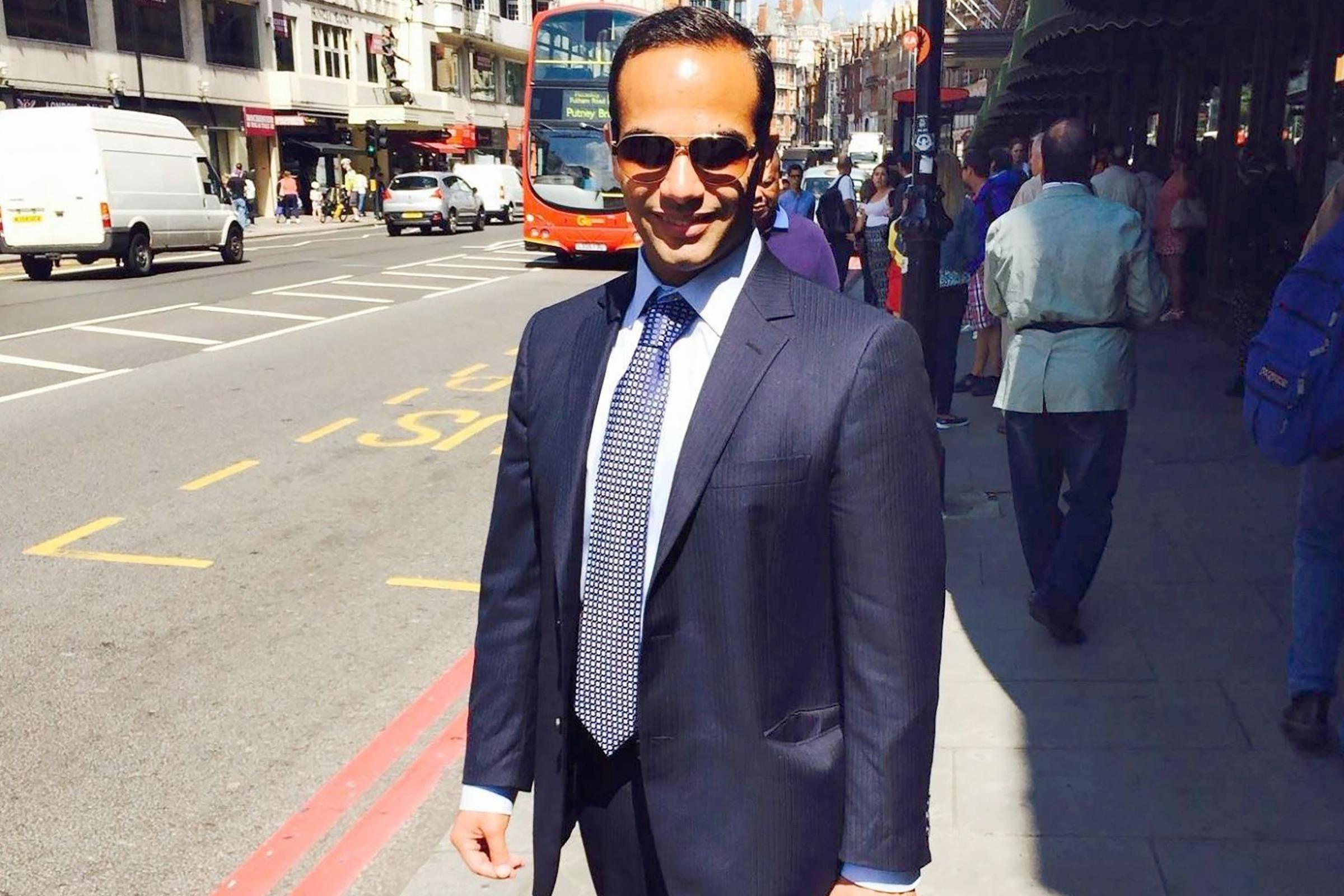
On July 27, 2017, former Trump campaign foreign policy adviser George Papadopoulos was arrested by FBI agents at Dulles Airport near Washington, D.C., and charged with obstruction of justice and lying to investigators.
The day after the arrest, Mueller’s team told a federal judge that Papadopoulos was willing to be a “proactive cooperator” and asked the court documents about the arrest be sealed. He was then released on his own recognizance.
Three months later, Mueller indicted former Trump campaign head Paul Manafort and assistant Rick Gates on charges ranging from unregistered lobbying for a foreign government to money laundering.
The White House responded that the indictments centered on alleged actions by Manafort and Gates long before they joined the campaign, and therefore were irrelevant.
Within hours, Mueller unveiled another surprise: a guilty plea from Papadopoulos to the reduced charge of lying to the FBI. The plea contained several references to his contacts with Russians and Trump campaign officials about meeting with Russians, undercutting Trump’s response to the Manafort and Gates indictments.
The timing of the legal motions around Papadopoulos is suggestive. If he was cooperating with Mueller’s team from July to October, what did he do exactly? Who did he talk to? What did they tell him? And while it seems a little far-fetched, did Papadopoulos actually wear a wire?
What else did Michael Cohen do for Trump?
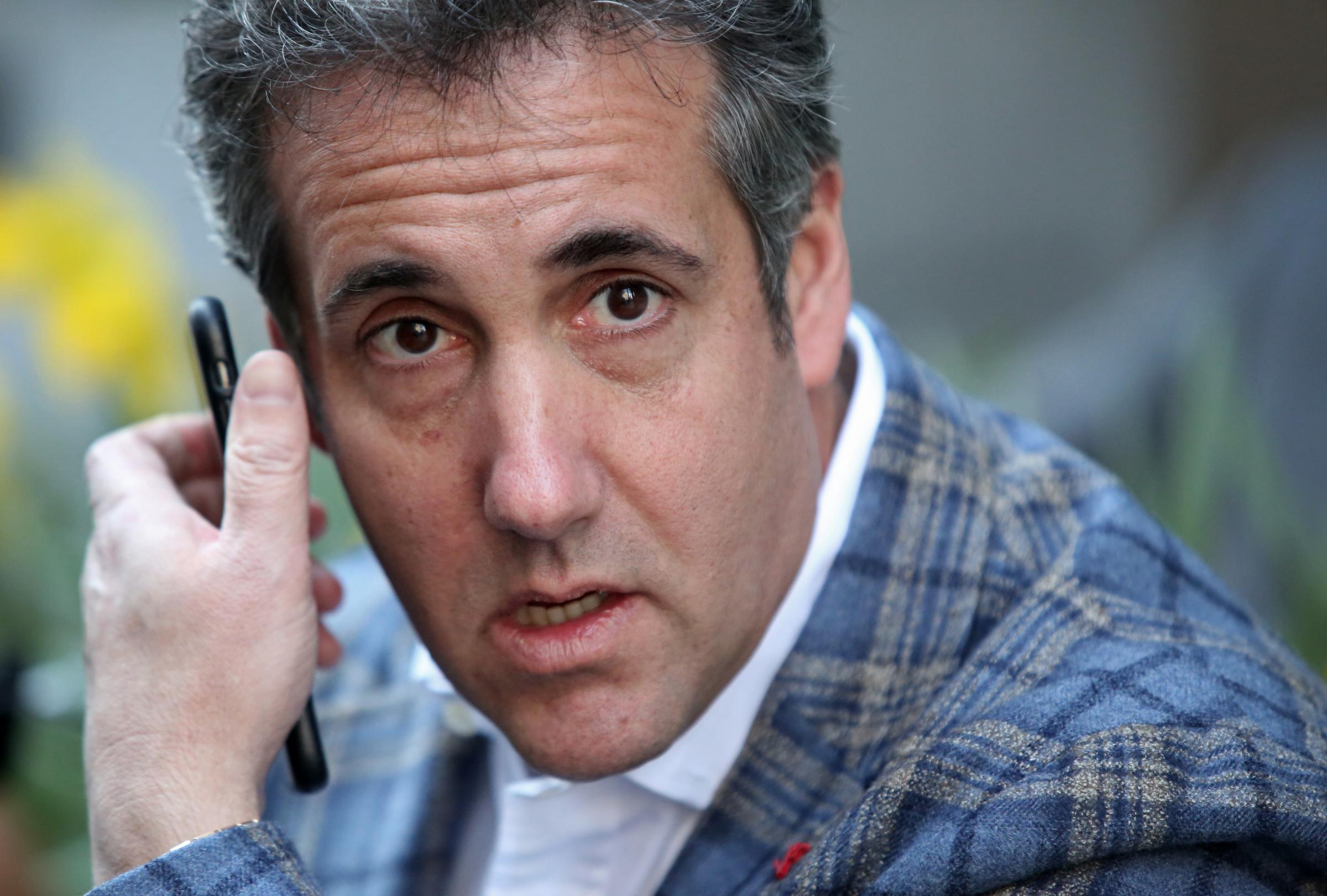
On April 9, 2018, FBI agents took the unusual step of raiding the office and hotel room of Trump’s longtime personal attorney, Michael Cohen, seizing business records, emails and other documents.
Cohen has not been charged with a crime, but legal experts say the fact that investigators went into his office even though he is a lawyer means they had to show convincing evidence to higher-ups that something was amiss.
Although he was Trump’s lawyer, Cohen portrayed himself as something more like a fixer, once comparing himself to TV character Ray Donovan.
Cohen arranged a $130,000 payment to porn star Stormy Daniels in exchange for keeping silent about an alleged sexual encounter with Trump, and Trump lawyer Rudy Giuliani left open the possibility that he might have made payments to other women. (He also arranged a similar $1.6 million payoff to a former Playboy model, which top Republican fundraiser Elliott Broidy said was done on his behalf.)
In recent days, it’s also been revealed that Cohen’s company — Essential Consultants LLC — was hired by AT&T, Novartis and Korea Aerospace, as well as Columbus Nova, a U.S. firm with ties to Russian oligarch Viktor Vekselberg, for consulting on everything from legal advice to health care policy. The CEOs of AT&T and Novartis have said those contracts were a mistake, while Columbus Nova has denied that Vekselberg was involved.
The Cohen investigation is not technically part of Mueller’s probe, since he referred it to federal prosecutors in the Southern District of New York, but his team questioned Vekselberg about the payments.
What questions do we still have about Mueller’s investigation?
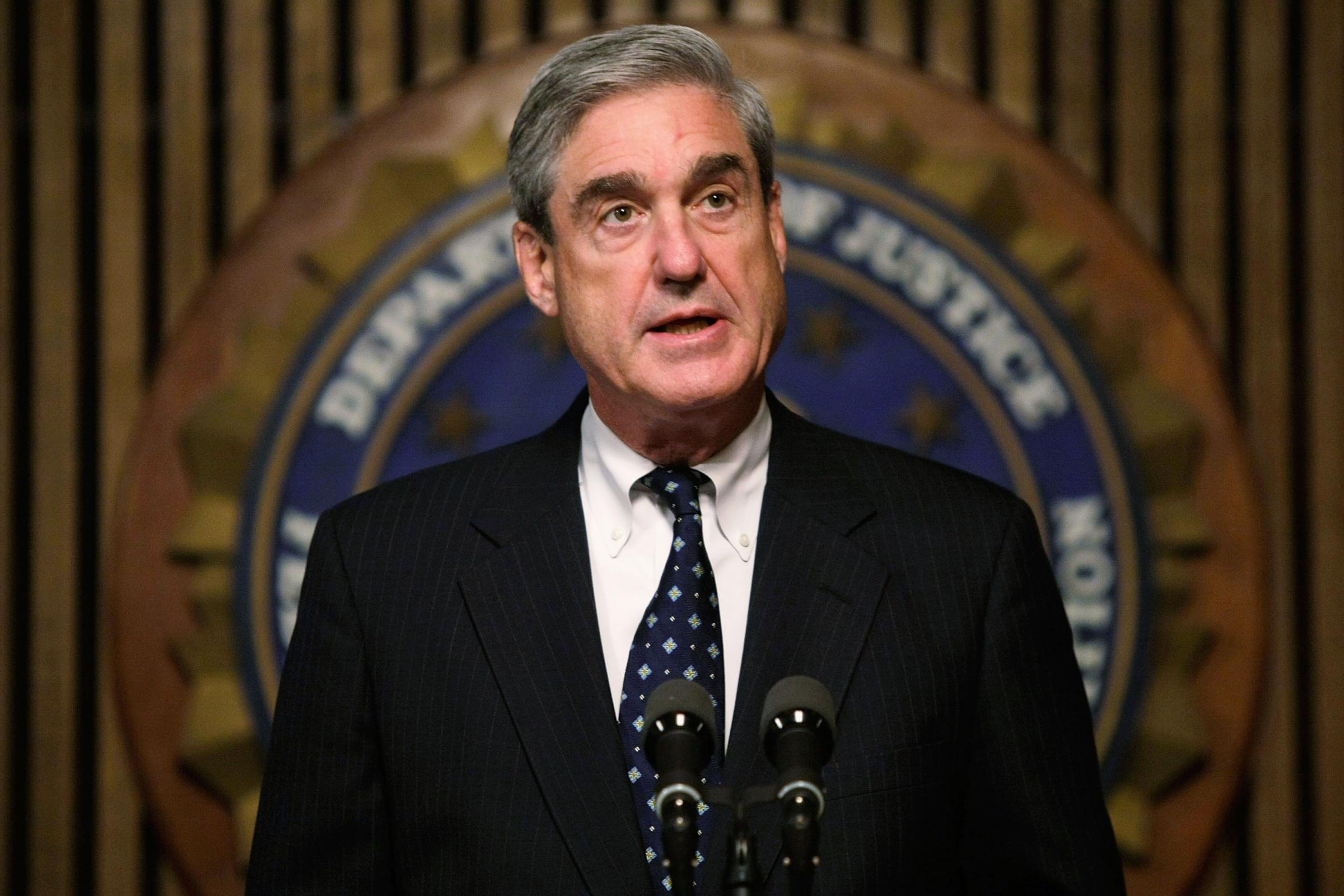
These are all just unanswered questions about the subjects we know about connected to Mueller’s probe.
But Mueller’s team has a broad purview, including Trump and his associates’ past business deals, Russian attempts to influence the elections through social media, Russian attempts to interfere with state-run elections systems, any Trump campaign contacts with Russians and potential obstruction of justice related to the investigation itself.
As we learn each time a new story breaks related to Mueller’s investigation, there’s a lot we still don’t know. But working with a team of lawyers who have already amassed hundreds of thousands of documents, Mueller may already know the answers to some of those questions — and some we don’t even have yet. And there’s likely some questions even he can’t answer.
More Must-Reads from TIME
- Donald Trump Is TIME's 2024 Person of the Year
- Why We Chose Trump as Person of the Year
- Is Intermittent Fasting Good or Bad for You?
- The 100 Must-Read Books of 2024
- The 20 Best Christmas TV Episodes
- Column: If Optimism Feels Ridiculous Now, Try Hope
- The Future of Climate Action Is Trade Policy
- Merle Bombardieri Is Helping People Make the Baby Decision
Contact us at letters@time.com